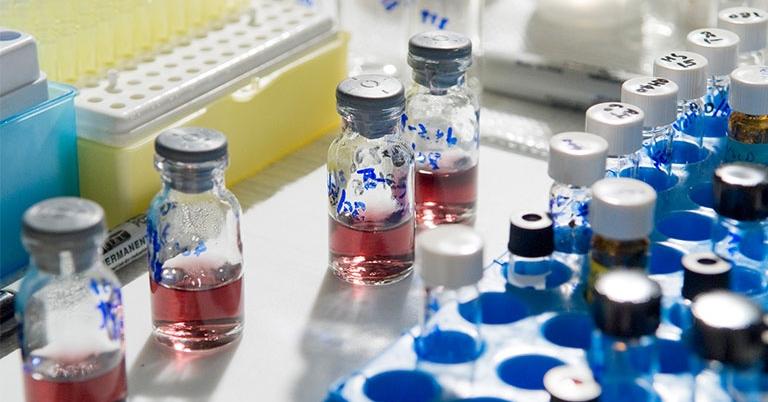Are you curious to know what is pharmaceutical chemistry? You have come to the right place as I am going to tell you everything about pharmaceutical chemistry in a very simple explanation. Without further discussion let’s begin to know what is pharmaceutical chemistry?
What Is Pharmaceutical Chemistry?
Pharmaceutical chemistry is a captivating and vital field that lies at the intersection of chemistry, biology, and medicine. It is a scientific discipline dedicated to the discovery, development, and analysis of drugs and medications. Pharmaceutical chemists employ their expertise to design and synthesize new compounds, optimize existing medications, and ensure their safety and efficacy. This blog post aims to delve into the fascinating world of pharmaceutical chemistry and shed light on its crucial role in improving human health.
The Role Of Pharmaceutical Chemistry:
Pharmaceutical chemistry serves as the foundation for the development of effective and safe medications. It encompasses various aspects of drug discovery and development, including the identification of potential drug targets, the synthesis of new chemical entities, formulation optimization, and comprehensive analysis of drug properties. Pharmaceutical chemists collaborate closely with other professionals, such as pharmacologists, toxicologists, and clinicians, to translate scientific discoveries into viable therapeutic solutions.
Drug Discovery And Design:
The initial stages of drug development involve identifying potential drug targets and designing molecules that can interact with these targets to elicit a desired therapeutic effect. This process often starts with extensive research and understanding of the biological pathways involved in disease. Pharmaceutical chemists utilize their knowledge of molecular interactions and organic synthesis to create new compounds or modify existing ones, aiming to enhance their potency, selectivity, and pharmacokinetic properties.
Chemical Synthesis:
Pharmaceutical chemists play a crucial role in the synthesis and production of active pharmaceutical ingredients (APIs) – the key components responsible for the therapeutic effects of medications. They employ various synthetic techniques to create these complex molecules in the laboratory. These processes require meticulous planning, optimization, and purification to ensure the purity and quality of the final product.
Formulation And Drug Delivery:
Once the active ingredient is synthesized, pharmaceutical chemists collaborate with formulation scientists to develop drug formulations that are safe, stable, and suitable for administration. They explore various techniques and excipients to enhance the solubility, bioavailability, and stability of the drug, aiming for optimal delivery and maximum therapeutic efficacy. Formulation chemists consider factors such as dosage form, route of administration, and patient compliance while designing drug delivery systems.
Pharmaceutical Analysis:
Pharmaceutical chemistry also encompasses analytical techniques to evaluate the quality, purity, and safety of medications. Analytical chemists collaborate with pharmaceutical scientists to develop robust methods for testing the identity, potency, and stability of drugs throughout their shelf life. These analyses ensure that the medications meet stringent regulatory standards and are safe for human consumption.
Safety And Regulatory Compliance:
Pharmaceutical chemists contribute significantly to the evaluation of the safety and efficacy of drugs. They conduct extensive studies to determine the potential toxic effects of compounds and assess their risk profiles. Additionally, they work closely with regulatory bodies to ensure compliance with safety and quality standards, such as Good Manufacturing Practices (GMP) and the regulations set forth by health authorities.
Conclusion:
Pharmaceutical chemistry plays a vital role in improving human health by driving the discovery, development, and analysis of medications. It combines the knowledge of chemistry, biology, and medicine to create new molecules, optimize existing drugs, and ensure their safety and efficacy. The contributions of pharmaceutical chemists are instrumental in the continuous advancement of therapeutic interventions, enhancing the quality of life for countless individuals worldwide. As we move forward, this field will undoubtedly continue to push boundaries and unlock new frontiers in the pursuit of innovative and effective medicines.
You can collect more information on Getdailytech.
FAQ
What Is The Meaning Of Pharmaceutical Chemistry?
Pharmaceutical (medicinal) chemistry is concerned with the design (drug design) and synthesis of biologically active molecules. The aim is to gain new chemical molecules that could enable the discovery of new pharmaceuticals or optimize already known drug structures, thereby to expand the portfolio of chemical drugs.
What Is Scope Of Pharmaceutical Chemistry?
Studying pharmaceutical chemistry allows students to contribute to life-saving remedies, enhance the speed of delivery of new medications, and help others. Pharmaceutical chemistry also includes other branches of study such as pharmacokinetics, pharmacodynamics, and drug metabolism.
What Is An Example Of Pharmaceutical Chemistry?
Inorganic pharmaceutical chemistry is the study of metals, transition metals, metalloids, and organic metallic compounds that exhibit medicinal values. Some examples include lithium for depression, and cisplatin in chemotherapy.
What Is Msc In Pharmaceutical Chemistry?
The MSc Pharmaceutical Chemistry course provides training either for employment or for continued studies such as a PhD. You will be well equipped to pursue careers in the pharmaceutical industry or in other roles in the life science sector which also includes the biotechnological industries.
I Have Covered All The Following Queries And Topics In The Above Article
What Is Impurities In Pharmaceutical Inorganic Chemistry
What Is Limit Test In Pharmaceutical Inorganic Chemistry
What Is Pharmaceutical Inorganic Chemistry
What Is Impurities In Pharmaceutical Chemistry
What Is The Pharmaceutical Chemistry
What Is Pharmaceutical Chemistry In Hindi
What Is Pharmaceutical Organic Chemistry
What Is Pharmaceutical Chemistry
What is pharmaceutical chemistry in simple terms










